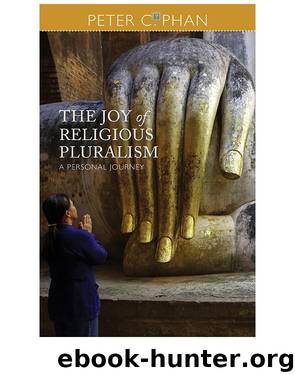The Joy of Religious Pluralism by Unknown

Author:Unknown
Language: eng
Format: epub
Published: 2019-11-22T16:00:00+00:00
Vatican II on “Non-Christian” Religions:
A Thought Experiment
The year 2015 marked the fiftieth anniversary of the end of the Second Vatican Council (1962–65). It was an opportune moment to celebrate the enormous achievements of the council as well as to chart a future path for the church into the twenty-first century, especially under the leadership of Pope Francis. Whether one extolls Vatican II as a new Pentecost bringing much-needed renewal to the church that was out of step with the world or condemns it as a disastrous capitulation to the spirit of the age—and there are plenty of people on both sides—there is no denying that the council has truly changed, for good or for ill, the face of the Catholic Church. With regard to the church’s attitude toward non-Christian religions, it is common knowledge that Vatican II marked a significant evolution—I for one would argue, revolution. Summarizing the changed attitude between “before Vatican II” and “after Vatican II,” Jacques Dupuis uses the expression “From Confrontation to Dialogue” as the subtitle of his book on the recent Christian theology of religion.4 Perhaps “From Condemnation to Dialogue” may be a more accurate description. Vatican II’s teaching on other religions are found chiefly in three documents: the Dogmatic Constitution on the Church (Lumen Gentium), the Decree on the Missionary Activity of the Church (Ad Gentes), and most importantly, in the Declaration on the Relation of the Church to Non-Christian Religions (Nostra Aetate [NA]). In what follows I will focus mainly on the last document, which, in spite of the fact that it is only a “declaration” and not a “constitution’ or a “decree” and the shortest, with only 1,114 words, in forty-one sentences, and five paragraphs, is arguably one of the most influential documents of the council.
Download
This site does not store any files on its server. We only index and link to content provided by other sites. Please contact the content providers to delete copyright contents if any and email us, we'll remove relevant links or contents immediately.
Call me by your name by Andre Aciman(4689)
Rowling, J.K - Harry Potter 02 - Harry Potter and the Chamber of Secrets by Rowling J K(3318)
Paardenranch heartland - vol vertrouwen by Lauren Brooke(3163)
Harry Potter and the Chamber of Secrets (Book 2) by J.K. Rowling(2822)
The Kiss of Deception by Mary E. Pearson(2790)
Day by Elie Wiesel(2786)
Harry Potter and the Goblet of Fire (Book 4) by J.K. Rowling(2763)
A Thousand Splendid Suns by Khaled Hosseini(2716)
Holes by Louis Sachar(2686)
How to Make a Wish by Ashley Herring Blake(2588)
Just Listen by Sarah Dessen(2580)
I've Got Your Number by Sophie Kinsella(2561)
Bossypants by Tina Fey(2533)
Holding Up the Universe by Jennifer Niven(2508)
Talking as Fast as I Can by Lauren Graham(2447)
Confessions of a Shopaholic by Sophie Kinsella(2375)
The Body Keeps the Score by Bessel van der Kolk MD(2218)
Call Me by Your Name: A Novel by André Aciman(2215)
No Time to Say Goodbye(2119)
